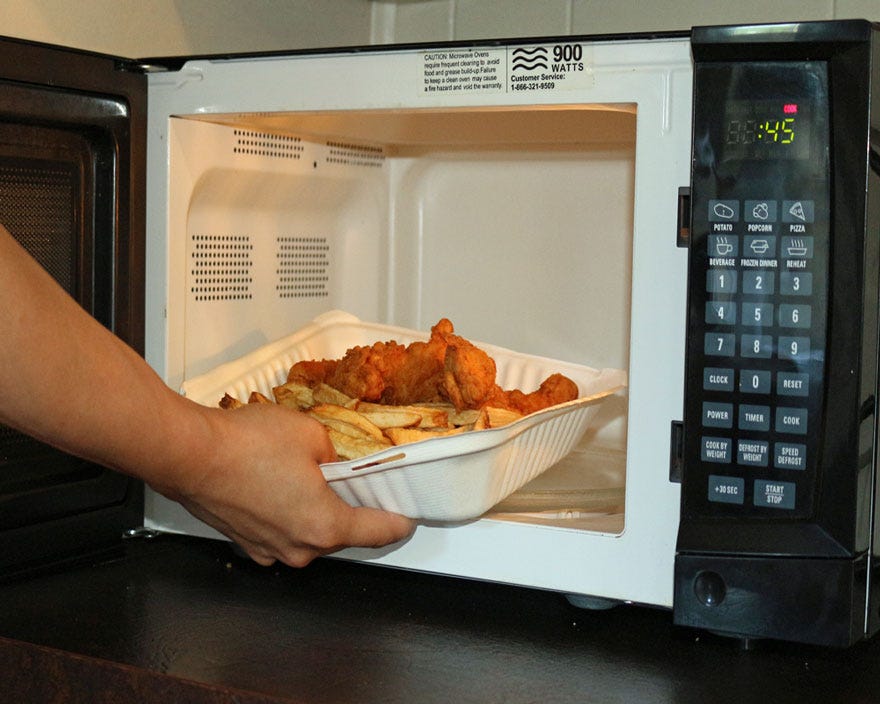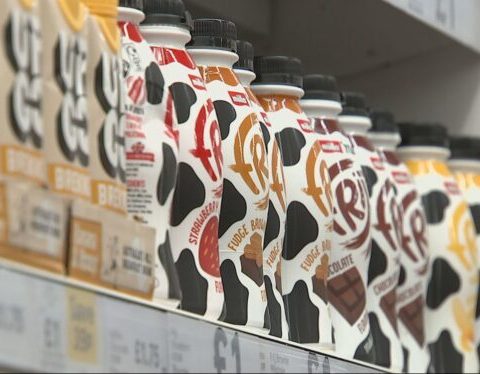According to the World Health Organization (WHO), microwaving food is generally safe.
Note that even if a plastic container is labeled “microwave safe,” that simply means it won’t melt.
However, microwaving contents in plastic containers are associated with increased melting and transfer or leaking of chemicals into food and this can affect our health.
Join our WhatsApp ChannelWhat is a plastic?
Plastic is a material comprised of long chains of polymers made from chemicals ,oil and natural gas.
Is it safe?
The main concern with microwaving plastic is that it can melt and transfer its chemical substance to the meal and when this chemical is ingested it causes harm to the body.
This harmful chemicals include;
1. BPA (Bisphenol A); Used to make plastic harder but it disrupts the body’s hormones and have been linked to obesity, diabetes, and danger to reproductive health.
2. Phthalates: Used to make plastic stronger and more flexible. It is endocrine disruptor, which mimic or block natural hormones in the body.
People with the highest levels of phthalates had a greater risk of death from any cause, especially cardiovascular mortality.
READ ALSO: Deodorant Causes Breast Cancer: Myth Or Fact?
Aside from microwaving, other factors that can increase chemical leaking/ transfer include;
1. Placing foods in plastic containers when they are still hot.
2. Scrubbing containers using abrasive materials, such as steel wool, that can cause scratching.
3. Using containers for an extended period of time.
4. Exposing containers to the dishwasher repeatedly over time.
So is it time to toss your plastic storage collection? Not necessarily. While it may seem a bit scary, we can consider the following while using plastics; Not yet!
1. The FDA regulates plastic: Food and drug agency scrutinizes plastic production. While this doesn’t necessarily prevent some substances from being included in plastic, it ensures the amounts are within an estimated safe range.
2. There are good plastics and bad plastics. Some plastic materials are safer than others. You’ll want to avoid BPA entirely, and check the recycling symbol marked on the bottom. In general, avoid plastics with the numbers 1, 3, 6 or 7 on them. Safer options will be labeled 2, 4 and 5.
To keep your food safe you must store safe, heat safe and eat safe:
1. Choose phthalate-free and BPA-free products.
2. In the microwave, heat food in glass or microwave-safe porcelain.
3. Use paper towels, not plastic to cover food. Condensation from plastic lids could contain phthalates.
4. Avoid storing food in disposable plastics. Use glass, stainless steel, ceramic or wood to hold and store foods.
5. Throw away old plastic, as there is more leaching if it is older or cracked.
6. Avoid reusing plastic water bottles or takeout containers.
7. Do not keep water bottles near heat or in the hot sun.
8. Avoid placing hot liquids or foods in plastics.
9. Avoid freezing plastic containers, then thawing them in microwaves.
10. Read recycling symbols on plastic containers, and steer clear of those marked 1, 3, 6 or 7.
Don’t panic!
If you’ve been storing and heating food in plastic for years, don’t panic. The truth is these chemicals are around us all the time. From vinyl flooring to nail polish, we’ll never truly escape them. These chemicals are everywhere, so we’ll be faced with them in our lifetime, However, it’s never too late to make healthy changes, and decrease the amount of exposure.
Thank you for reading
Dr kelly











